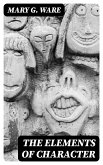In "Elements of Morals," Paul Janet presents a profound exploration of ethical principles that underpin human actions and societal norms. With a distinctive analytical style, Janet delves into various moral philosophies, juxtaposing classical theories with contemporary perspectives. His methodical examination encompasses themes of individual morality, social justice, and the philosophical foundations of ethical decision-making, revealing the complexities inherent in moral reasoning. The book occupies a significant place in the moral philosophy discourse of the late 19th century, offering critical insights that continue to resonate with modern ethical dilemmas. Paul Janet, a prominent French philosopher, was deeply influenced by the intellectual currents of his time, particularly Auguste Comte's positivism. His academic background, intertwined with an appreciation for scientific rigor, informed his approach to moral philosophy. Janet sought to bridge the gap between empirical understanding and moral reasoning, positioning "Elements of Morals" as a vital contribution to the evolution of ethics. His engagement with social issues and advocacy for rational thought highlighted his commitment to applying philosophical concepts to everyday life. This book is essential for anyone interested in the foundations of moral philosophy, as it not only articulates key ethical doctrines but also challenges readers to contemplate their moral frameworks. Janet's rigorous inquiry invites scholars, students, and inquisitive minds alike to engage critically with the principles guiding human conduct, making it a valuable addition to the library of anyone eager to understand the intricacies of morality.
Dieser Download kann aus rechtlichen Gründen nur mit Rechnungsadresse in A, B, BG, CY, CZ, D, DK, EW, E, FIN, F, GR, H, IRL, I, LT, L, LR, M, NL, PL, P, R, S, SLO, SK ausgeliefert werden.









